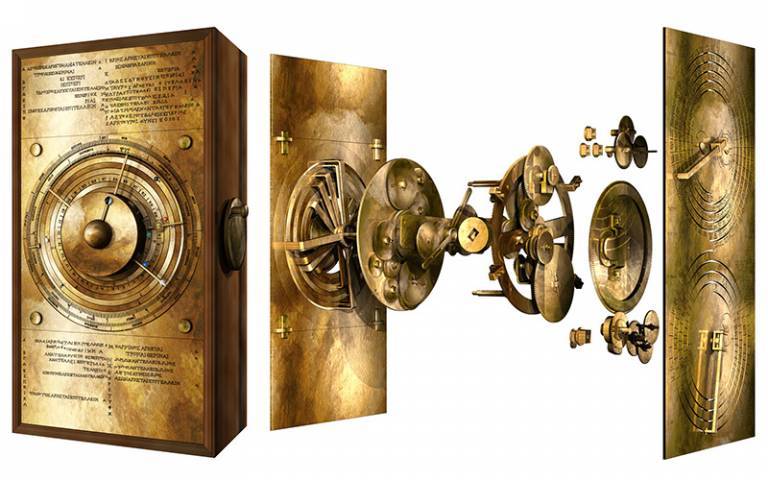UCL Engineering experts recreate a mechanical Cosmos for the world’s first computer
15 March 2021
UCL Mechanical Engineering, UCL Civil, Environmental and Geomatic Engineering and UCL Qatar researchers have solved a major piece of the puzzle that makes up the Antikythera Mechanism, an ancient Greek hand-powered mechanical device used to predict astronomical events.

Known to many as the world’s first analogue computer, the Antikythera Mechanism is the most complex piece of engineering to have survived from the ancient world. The 2,000-year-old device was used to predict the positions of the Sun, Moon and the planets as well as lunar and solar eclipses.
Published in Scientific Reports, the paper from the multidisciplinary UCL Antikythera Research Team reveals a new display of the ancient Greek order of the Universe (Cosmos), within a complex gearing system at the front of the Mechanism.
Lead author Professor Tony Freeth (UCL Mechanical Engineering) explains:
Ours is the first model that conforms to all the physical evidence and matches the descriptions in the scientific inscriptions engraved on the Mechanism itself. The Sun, Moon and planets are displayed in an impressive tour de force of ancient Greek brilliance.”
Read more in the UCL News article
Video
- Copyright c/o Professor Tony Freeth: https://vimeo.com/518734183
Links
- Research paper A Model of the Cosmos in the ancient Greek Antikythera Mechanism in Scientific Reports
- Professor Tony Freeth's academic profile
- UCL Antikythera Mechanism Research Project
- UCL Mechanical Engineering
- UCL Civil, Environmental and Geomatic Engineering
- UCL Engineering
- UCL Qatar
Image
- Caption: Exploded model of the Cosmos gearing of the Antikythera Mechanism.
- Credit: ©2020 Tony Freeth.
With thanks to Kate Corry.
 Close
Close

